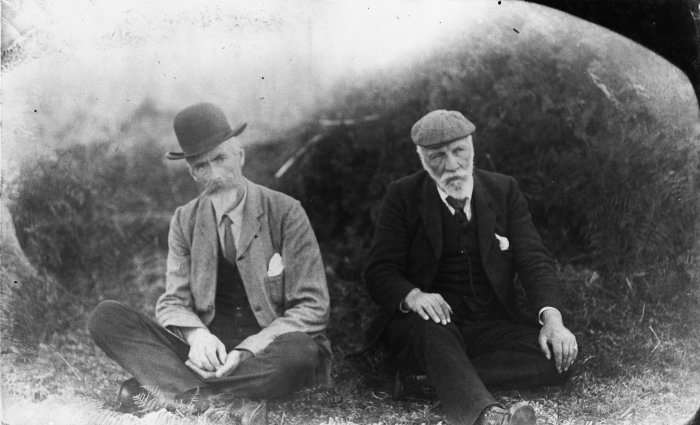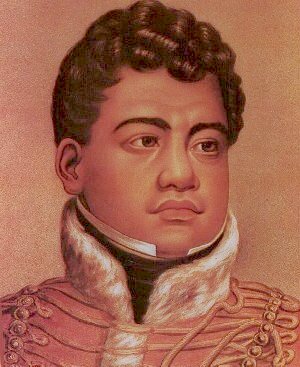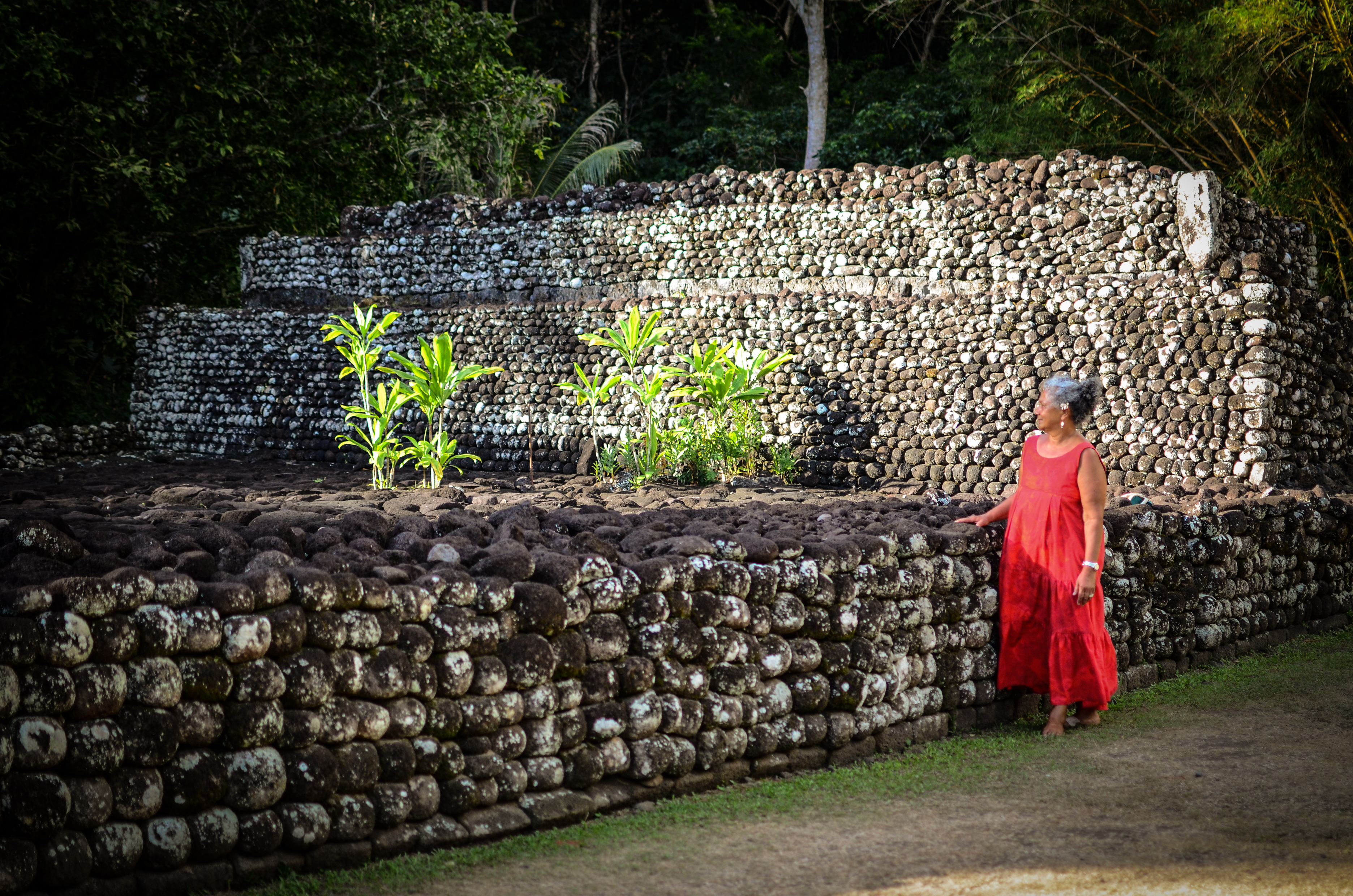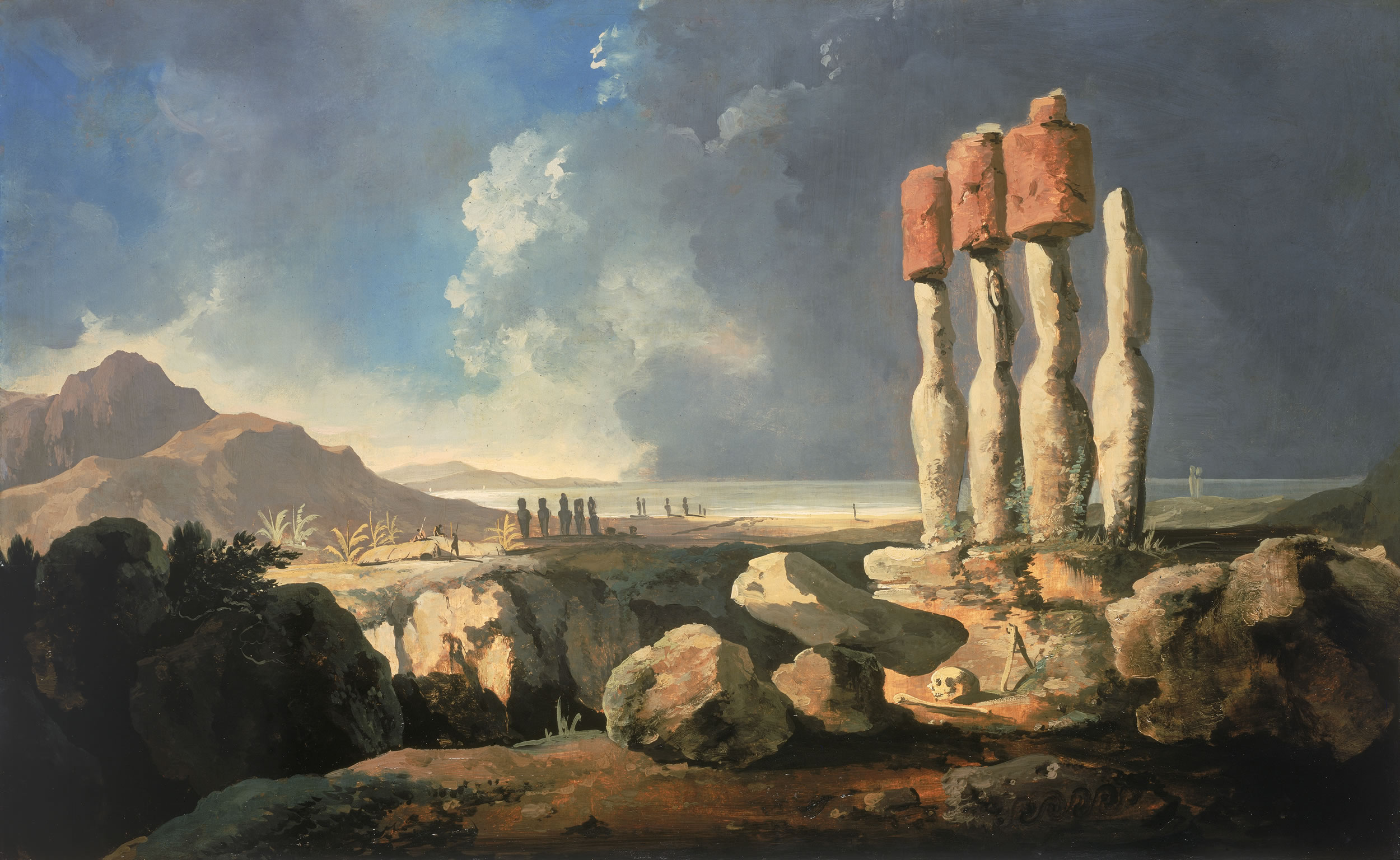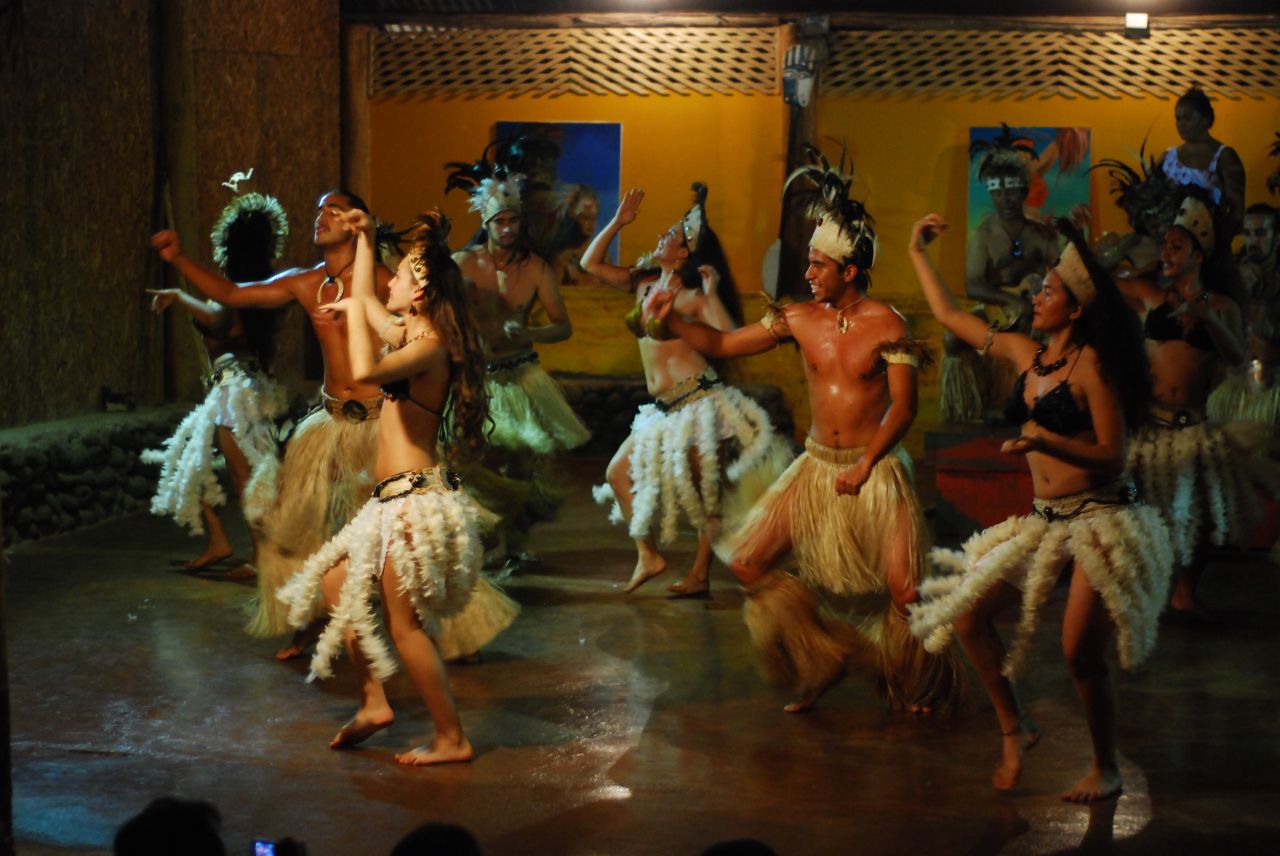|
Havaii
Havaii is one of a half dozen or so variant spellings of Hawaii that can be found across all three points of Polynesia. Havaii or Hawai'i refers to the ancient name for both Ra'iatea and Fakarava, both in French Polynesia. Common to all monarchial systems, island names changed by royal order or common assent, according to historic events. Other variants include Savai'i, Avaiki and Hawaiki, with the names attaining a political as well as cultural significance in postcolonial times. Usage Unlike Hawai'i, Havai'i spelled with an okina is simply a misspelling. Although "Hawaii" is the anglicized spelling used throughout the rest of the United States of America, Hawai'i, spelled with an okina between the Is, is the spelling used by most local Hawaiian people. An apostrophe is commonly used in the place of an okina, due to the lack of the symbol on most keyboards. Language workers also know this apostrophe is actually reversed, a glottal stop, signifying a verbal chop between vowels. Few ... [...More Info...] [...Related Items...] OR: [Wikipedia] [Google] [Baidu] |
Avaiki
Avaiki is one of the many names by which the peoples of Polynesia refer to their ancestral and spiritual homelands. Samoa, Hawaii, Cook Islands By no means certain, but certainly possible, is an origin in the large islands of Samoa, namely Savaii and Upolu. Variants include, in order of migration, Havaii, the old name for Raiatea in French Polynesia; the far better known Hawaii in the United States, Avaiki in the Cook Islands and Niue and Hawaiki in New Zealand. There are endless local variants. In the Cook Islands, for example, on the capital island of Rarotonga, northern facing volcanic rocks, tumbling onto the shore millennia ago and still set in place, are well known as the ancient departure point for souls bound for Avaiki - the afterworld or heaven. In fact each island, ''vaka'' or ''ngati'' (family line) has its own Avaiki or interpretation of it. For instance it would be somewhere in the Manu'a islands group (American Samoa) for the Ngati Karika (Te au o Tonga tribe ... [...More Info...] [...Related Items...] OR: [Wikipedia] [Google] [Baidu] |
Hawaii
Hawaii ( ; ) is an island U.S. state, state of the United States, in the Pacific Ocean about southwest of the U.S. mainland. One of the two Non-contiguous United States, non-contiguous U.S. states (along with Alaska), it is the only state not on the North American mainland, the only state that is an archipelago, and the only state in the tropics. Hawaii consists of 137 volcanic islands that comprise almost the entire Hawaiian Islands, Hawaiian archipelago (the exception, which is outside the state, is Midway Atoll). Spanning , the state is Physical geography, physiographically and Ethnology, ethnologically part of the Polynesian subregion of Oceania. Hawaii's ocean coastline is consequently the List of U.S. states and territories by coastline, fourth-longest in the U.S., at about . The eight main islands, from northwest to southeast, are Niihau, Niihau, Kauai, Kauai, Oahu, Oahu, Molokai, Molokai, Lanai, Lānai, Kahoʻolawe, Kahoolawe, Maui, and Hawaii (island), Hawaii, a ... [...More Info...] [...Related Items...] OR: [Wikipedia] [Google] [Baidu] |
Aotearoa
''Aotearoa'' () is the Māori name for New Zealand. The name was originally used by Māori in reference only to the North Island, with the whole country being referred to as ''Aotearoa me Te Waipounamu'' – where ''Te Ika-a-Māui'' means North Island, and ''Te Waipounamu'' means South Island. In the pre-European era, Māori did not have a collective name for the two islands. Several meanings for Aotearoa have been proposed; the most popular translation usually given is "land of the long white cloud", or variations thereof. This refers to the cloud formations which are believed to have helped early Polynesian navigators find the country in Māori oral tradition. Beginning in the late 20th century, ''Aotearoa'' has become widespread in the bilingual naming of national organisations and institutions. Since the 1990s, it has been customary for particular parties to sing the New Zealand national anthem, " God Defend New Zealand" (or "Aotearoa"), in both Māori and English, wh ... [...More Info...] [...Related Items...] OR: [Wikipedia] [Google] [Baidu] |
Geography Of French Polynesia
French Polynesia is located in Oceania. It is a group of six archipelagos in the South Pacific Ocean, about halfway between South America and Australia. Its area is about 4,167 km2 (around 130 islands), of which 3,827 km2 is land and 340 km2 is (inland) water. It has a coastline of 2,525 km but no land borders with other countries. Physical geography There are 118 islands in French Polynesia (and many more islets or ''motus'' around atolls). Four of the islands are volcanic and one island is coral. Makatea in French Polynesia is one of the three great phosphate rock islands in the Pacific Ocean – the others are Banaba (Ocean Island) in Kiribati and Nauru. The terrain consists of a mixture of rugged high islands and low islands with reefs. It is made up of six archipelagos. The largest and most populated island is Tahiti, in the Society Islands. The archipelagos are: * Marquesas Islands – administratively making the Marquesas Islands subdivision (12 h ... [...More Info...] [...Related Items...] OR: [Wikipedia] [Google] [Baidu] |
Alternative Place Names
Alternative or alternate may refer to: Arts, entertainment and media * Alternative (''Kamen Rider''), a character in the Japanese TV series ''Kamen Rider Ryuki'' * Alternative comics, or independent comics are an alternative to mainstream superhero comics * Alternative fashion, fashion that stands apart from mainstream, commercial fashion. * Alternative manga, manga published outside the more commercial market, or which have different art styles, themes, and narratives to those found in the more popular manga magazines. * '' AlterNative'', academic journal * ''The Alternative'' (film), a 1978 Australian television film * ''The Alternative'', a radio show hosted by Tony Evans * ''120 Minutes'' (2004 TV program), an alternative rock music video program formerly known as ''The Alternative'' *'' The American Spectator'', an American magazine formerly known as ''The Alternative: An American Spectator'' Music * Alternative dance, a musical genre that mixes alternative rock with e ... [...More Info...] [...Related Items...] OR: [Wikipedia] [Google] [Baidu] |
Maoli
Native Hawaiians (also known as Indigenous Hawaiians, Kānaka Maoli, Aboriginal Hawaiians, or simply Hawaiians; , , , and ) are the Indigenous Polynesian people of the Hawaiian Islands. Hawaiʻi was settled at least 800 years ago by Polynesians who sailed from the Society Islands. The settlers gradually became detached from their homeland and developed a distinct Hawaiian culture and identity in their new home. They created new religious and cultural structures, in response to their new circumstances and to pass knowledge from one generation to the next. Hence, the Hawaiian religion focuses on ways to live and relate to the land and instills a sense of community. The Hawaiian Kingdom was formed in 1795, when Kamehameha the Great, of the then-independent island of Hawaiʻi, conquered the independent islands of Oʻahu, Maui, Molokaʻi, and Lānaʻi to form the kingdom. In 1810, Kauaʻi and Niʻihau joined the Kingdom, the last inhabited islands to do so. The Kingdom received many ... [...More Info...] [...Related Items...] OR: [Wikipedia] [Google] [Baidu] |
Tahiti
Tahiti (; Tahitian language, Tahitian , ; ) is the largest island of the Windward Islands (Society Islands), Windward group of the Society Islands in French Polynesia, an overseas collectivity of France. It is located in the central part of the Pacific Ocean and the nearest major landmass is the North Island of New Zealand. The island was formed from Volcano, volcanic activity in two overlapping parts, ''Tahiti Nui'' (bigger, northwestern part) and ''Tahiti Iti'' (smaller, southeastern part); it is high and mountainous with surrounding coral reefs. Its population was 189,517 in 2017, making it by far the most populous island in French Polynesia and accounting for 68.7% of its total population; the 2022 Census recorded a population of 191,779. Tahiti is the economic, cultural, and political centre of French Polynesia. The capital of French Polynesia, Papeete, Papeete, is located on the northwest coast of Tahiti. The only international airport in the region, Faaʻa International ... [...More Info...] [...Related Items...] OR: [Wikipedia] [Google] [Baidu] |
Maohi
:''"Maohi" can also refer to the indigenous people of French Polynesia, also known as Tahitians.'' In Tahiti and adjacent islands, the term Maohi (''Mā’ohi'' in Tahitian language) refers to the ancestors of the Polynesian peoples. The term can also be a reference to normal, everyday people, just as Māori is accepted among native or indigenous people in New Zealand or the Cook Islands as the way they describe themselves. Te Ao Maohi – the Maohi world – as an expression coined by Oscar Temaru gives an example of this. History The Ma'ohi people first arrived to what is known today as French Polynesia over 2,300 years ago. The Ma'ohi include not only Tahiti but 17 surrounding islands in French Polynesia. It wasn't until the 18th century that external influence was introduced to the Ma'ohi people. In 1880 France seized control of Tahiti and its surrounding islands. La Culture Ma'ohi La Culture Ma'ohi is a culture movement by the Ma'ohi people to rediscover their culture a ... [...More Info...] [...Related Items...] OR: [Wikipedia] [Google] [Baidu] |
Easter Island
Easter Island (, ; , ) is an island and special territory of Chile in the southeastern Pacific Ocean, at the southeasternmost point of the Polynesian Triangle in Oceania. The island is renowned for its nearly 1,000 extant monumental statues, called ''moai'', which were created by the early Rapa Nui people. In 1995, UNESCO named Easter Island a World Heritage Site, with much of the island protected within Rapa Nui National Park. Experts differ on when the island's Polynesian inhabitants first reached the island. While many in the research community cited evidence that they arrived around the year 800, a 2007 study provided compelling evidence suggesting their arrival was closer to 1200. The inhabitants created a thriving and industrious culture, as evidenced by the island's numerous enormous stone ''moai'' and other artifacts. Land clearing for cultivation and the introduction of the Polynesian rat led to gradual deforestation. By the time of European arrival in 1722, the i ... [...More Info...] [...Related Items...] OR: [Wikipedia] [Google] [Baidu] |
Rapanui
The Rapa Nui (Rapa Nui: , Spanish: ) are the Indigenous Polynesian peoples of Easter Island. The easternmost Polynesian culture, the descendants of the original people of Easter Island make up about 60% of the current Easter Island population and have a significant portion of their population residing in mainland Chile. They speak both the traditional Rapa Nui language and the primary language of Chile, Spanish. At the 2017 census there were 7,750 island inhabitants—almost all living in the village of Hanga Roa on the sheltered west coast. As of 2011, Rapa Nui's main source of income derived from tourism, which focuses on the giant sculptures called moai. Over the past decade, Rapa Nui activists have been fighting for self-determination and sovereignty over their lands. Protests in 2010 and 2011 by the Indigenous Rapa Nui on Easter Island, objecting to the creation of a marine park and reserve, have led to clashes with Chilean police. History Pre-European contact (30 ... [...More Info...] [...Related Items...] OR: [Wikipedia] [Google] [Baidu] |
Cook Islands
The Cook Islands is an island country in Polynesia, part of Oceania in the South Pacific Ocean. It consists of 15 islands whose total land area is approximately . The Cook Islands' Exclusive Economic Zone (EEZ) covers of ocean. Avarua is its capital. The Cook Islands is self-governing while in free association with New Zealand. Since the start of the 21st century, the Cook Islands conducts its own independent foreign and defence policy, and also has its own customs regulations. Like most members of the Pacific Islands Forum, it has no armed forces, but the Cook Islands Police Service owns a Guardian Class Patrol Boat, , provided by Australia, in order to police its waters. In recent decades, the Cook Islands have adopted an increasingly assertive and distinct foreign policy, and a Cook Islander, Henry Puna, served as Secretary General of the Pacific Islands Forum from 2021 to 2024. Most Cook Islanders are also citizens of New Zealand, but they also have the status of Coo ... [...More Info...] [...Related Items...] OR: [Wikipedia] [Google] [Baidu] |
Glottal Stop
The glottal stop or glottal plosive is a type of consonantal sound used in many Speech communication, spoken languages, produced by obstructing airflow in the vocal tract or, more precisely, the glottis. The symbol in the International Phonetic Alphabet that represents this sound is . As a result of the obstruction of the airflow in the glottis, the glottal vibration either stops or becomes irregular with a low rate and sudden drop in intensity. Features Features of the glottal stop: * It has no phonation at all, as there is no airflow through the glottis. It is voiceless, however, in the sense that it is produced without vibrations of the vocal cords. Writing In the traditional romanization of many languages, such as Arabic, the glottal stop is transcribed with the Modifier letter apostrophe, apostrophe ʼ, or the symbol ʾ, , which is the source of the IPA character . In many Polynesian languages that use the Latin alphabet, however, the glottal stop is written wit ... [...More Info...] [...Related Items...] OR: [Wikipedia] [Google] [Baidu] |

